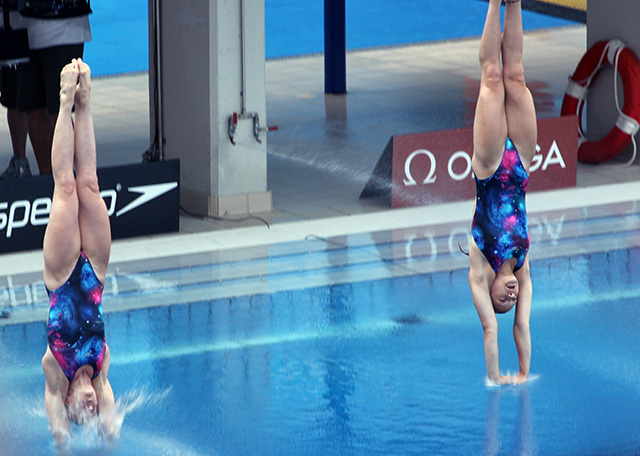In the realm of Olympic sports, where milliseconds and millimeters often separate winners from the rest, a unique set of disciplines defies objective measurement and relies instead on the discernment of human judges. These subjective sports bring artistry and athleticism together, but also spark debate over the fairness and consistency of scoring.
 Olympic diving
Olympic divingThere are many more Olympic sports that are judged than you think. The judges play a different role in each sport.
The Summer Olympic Games Judged Sports
- Artistic Gymnastics — Judges score athletes based on the difficulty of the routines and the execution, including the precision of movements, form, and artistry.
- Rhythmic Gymnastics — Judges evaluate the composition, difficulty, and execution of routines that combine dance, gymnastics, and apparatus handling.
- Dressage — In dressage, horses and riders are judged on the precision, smoothness, and expression of movements.
- Diving — Divers are scored on the execution of their dives, including factors like technique, form, entry into the water, and degree of difficulty.
- Artistic Swimming — Judges assess the synchronization, difficulty, and execution of the swimmers' routines, as well as artistic impression and choreography.
- Breakdancing — The sport is judged on technique, creativity, musicality, and the difficulty of moves.
- Trampoline — Scores are given based on the degree of difficulty, form, and height achieved during jumps and somersaults.
- Boxing — Judges score each round based on the number of clean punches landed, effective aggression, defense, and ring generalship, determining the winner at the end of the bout.
- BMX Freestyle — Athletes perform a series of tricks on a BMX bike, and judges score based on difficulty, execution, amplitude (height of tricks), originality, and flow.
- Skateboarding — Athletes are judged on the difficulty, execution, and originality of their tricks.
- Surfing — Surfers are scored based on wave selection, maneuvers performed, and overall style and control during their ride.
Sports Involving Judging
There are some sports which is not solely based on a jusges subjective assessment, but the judge still plays a major role in detemining the winners.
- Race Walking — The race walking track and field event is a timed race, but the judges are there to make sure you don't run, it's a very subjective thing.
- Judo — Judges play a role in scoring through determining the effectiveness of throws, holds, and submissions, awarding points or penalties accordingly.
- Taekwondo — In addition to point-based scoring, judges may award points for techniques that demonstrate superior skill, control, and strategy.
- Wrestling — While mostly objective, judges can be involved in scoring during tight matches, determining the winner based on technical points and overall dominance.
- Weightlifting — Judges determine the winners in weightlifting by evaluating the correct execution of the lift (snatch or clean and jerk) and ensuring that the athlete meets all technical requirements, such as a successful lift completion and adherence to the rules.
Discontinued Judged Sports
- Art Competitions — Judges awarded medals to artists based on the creativity, originality, and technical excellence of their works, which had to be inspired by sports and physical activities
- Karate — In the kata discipline, athletes perform solo routines, and judges score based on the precision, technique, and expression of each movement.
- Tumbling — Judges score athletes based on the difficulty, execution, and form of their sequences of flips and twists, as well as the height and precision of their landings
Related Pages
- Trivia about Olympic Sports
- List of Olympic Sports
- More Olympic Games Trivia
- Discontinued Olympic Sports
- Olympic Games Quiz Night Questions
- Tokyo Olympics Fun Facts
- More Sports Trivia


 Upcoming Events
Upcoming Events